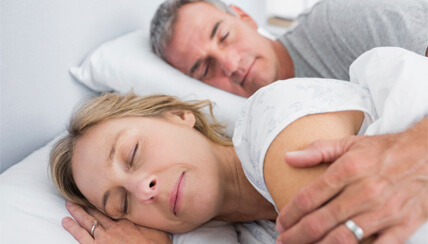Grass has begun pollinating and irritating those with grass allergies. The key to eliminating or reducing exposure to pollen is to keep outside air out, or if you're going to be outside, take the proper precautions. One of the most difficult things for allergy sufferers can be sleeping at night. One large study indicated nearly three quarters of allergy patients wake up during the night with symptoms at least once a week.
Here are a few ways to help you get a full night's sleep despite your allergies:
 Keep the house closed up. If possible, keep windows and outside doors shut during pollen season, especially during the daytime. If you have central or room air conditioning, use it so you can keep windows and outside doors shut. Keep pets that spend time outdoors out of the bedroom. In addition to animal dander allergens, they may carry and deposit pollen stuck to their fur.
Keep the house closed up. If possible, keep windows and outside doors shut during pollen season, especially during the daytime. If you have central or room air conditioning, use it so you can keep windows and outside doors shut. Keep pets that spend time outdoors out of the bedroom. In addition to animal dander allergens, they may carry and deposit pollen stuck to their fur.
Take your allergy medication at night. Hay fever symptoms, such as sneezing, runny nose and itchy eyes, generally peak early in the morning, shortly after waking up. Those morning symptoms can be reduced by taking your allergy medications at night. It assures that it will be circulating in your blood stream when you most need it, early the next morning. Allergy symptoms generally peak at about 4 a.m.
Be aware of pollen counts. Consider pollen counts when planning outdoor activities. It may help to limit your outdoor activities during the times of highest pollen and mold counts. You may find that outdoor activities may be better tolerated after a gentle, sustained rain.
Beware of your own clothing. If you are outdoors during high pollen counts, change your clothes (not in your bedroom) when you come indoors and leave these clothes in the laundry room. If you bring the clothes into the bedroom, you also bring the pollen and can affect your night's sleep. Also, dry laundry in a dryer only; avoid hanging clothes outside to dry.
Keep clean. Taking a shower before you go to bed can help wash away the pollens you've collected during the day. Wash your hands after outdoor play to avoid transferring pollen from the hands to the eyes and nose. If you are outdoors during high pollen counts, take a shower and wash your hair when you come inside.
This information has been approved by Rohit Katial, MD (May 2009).